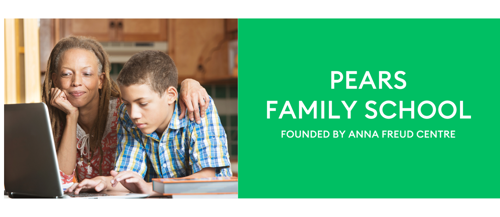Parent Coaching for Pupil Progress programme evaluation
We recently conducted an 18-month evaluation of Parent Coaching for Pupil Progress (PCPP) programme. PCPP is a model of support which was piloted in two mainstream secondary schools in Essex. The model is based on the Pears Family School approach, which centres the family in the child’s learning, developing resilience and social competence skills from which the whole family may benefit.

The programme was codesigned with the schools, which resulted in the programme taking the form of weekly workshops for families over eight weeks.
The programme developers trained staff from an Alternative Provision to deliver the programme in the schools. The schools identified children and families to invite along who were having difficulties with the transition to secondary school, with a focus on significant difficulties either in terms of behaviour or attendance. Parents and carers attended the workshops to learn new skills and to share experiences and support with other parents and carers. The children joined the second half of the workshops so the skills could be put into practice through fun activities. The units included building trust and improving communication, understanding mental health, executive function skills, emotional regulation and managing challenging behaviours, among others.
We were commissioned by Porticus to conduct an evaluation of the programme to help to inform the development of the programme. Our evaluation had two main aims. Firstly, we sought to explore how diverse groups of people, such as children and young people, parents and carers, and school staff experienced this programme. We also wanted to shed light on what factors facilitated and were barriers to the successful delivery of the programme. Secondly, we measured the effectiveness of the programme in helping children and young people and their families receive prompt and helpful support, in order to be happy and successful in mainstream schools.
We followed a mixed methods approach, which included developing a logic model, interviews with 12 participants (staff across the schools and the alternative provision, parents and children), the analysis of school administrative data on the children’s demographics and attendance before and after the programme, and a staff survey about the training.

We found that all staff survey respondents rated the quality and content of the training highly, stating that the skills and approaches in the training would help them in their role. We pulled all other data sources together into four illustrative case studies, which set out the initial challenges, what they did, and progress of four of the children who completed the programme. We also developed six overarching themes from the interviews which cover the benefits and outcomes of the programme and programme sustainability.
We found that the PCPP programme was described positively by interviewees, including staff and families. It was described as filling a gap in need as an evidence-based intervention which differed from existing programmes of support, and led to positive progress for the families who took part. One of the significant successes of the programme was described as its unique approach to involving parents and carers as well as their children in their school setting, while being delivered by a third party from an alternative provision. This was seen as a bridge for building relationships between the school staff and families. Progress made by children and families spans several areas, including improved family relationships, better strategies for the home and family, and improved confidence and experiences while in school.
The evaluation was commissioned with the aim that our findings would help to inform further development of the programme, with a focus on learning from implementation for future delivery and scalability. In our evaluation report, we made recommendations which should help with continued roll out of the programme.
The PCPP programme comes at a crucial time when Ofsted are proposing changes, to restructure their inspections. From January 2026, Ofsted plan to increase their focus on inclusion, and place particular emphasis on the school having good connections with their community and with parents and carers in a way that aligns with the programme. Key elements of the programme that we found were particularly important to the staff and parents and carers were the peer support element for the parents and carers, and the way the programme provides a way for schools to build relationships with families they may not have otherwise been able to. The programme involving parents and cares as well as their children in the school, while being delivered by an alternative provision was described as being unique to the programme .
From a researcher’s perspective, this evaluation was very fascinating. We were interested by the approach the programme takes with parents and carers, and the links built between mainstream schools and alternative provisions. Carrying out the online interviews with parents and children was both a great learning experience for the research team, and an enjoyable opportunity to have relaxed conversations. It was helpful to hear from both perspectives as well.
Following on from this pilot, and our evaluation recommendations, we are keen to see what direction the programme goes in next. Our full evaluation report will be available.
Jenna Jacob, CORC Research Lead
Anoushka Kapoor, CORC Research Officer